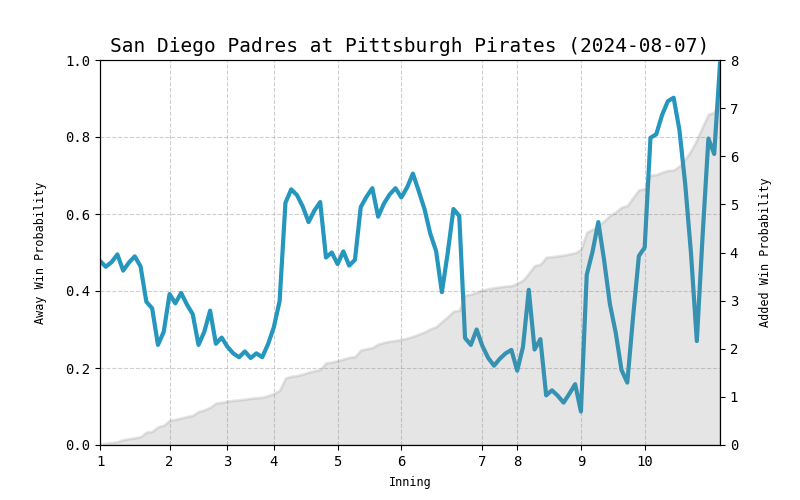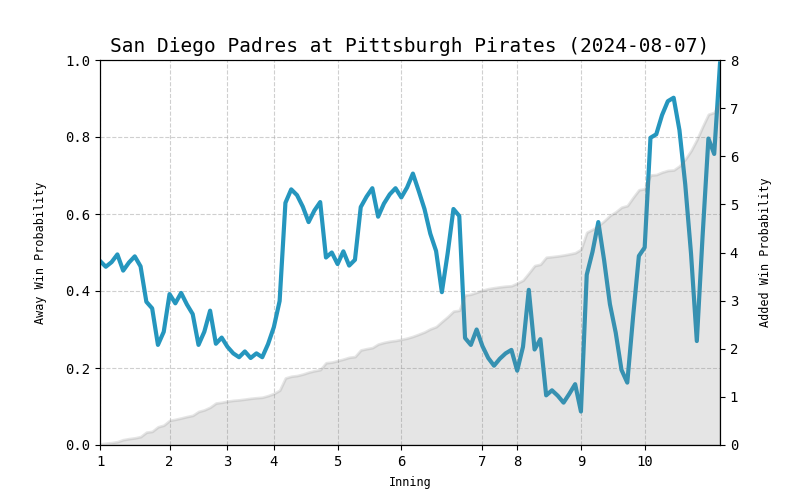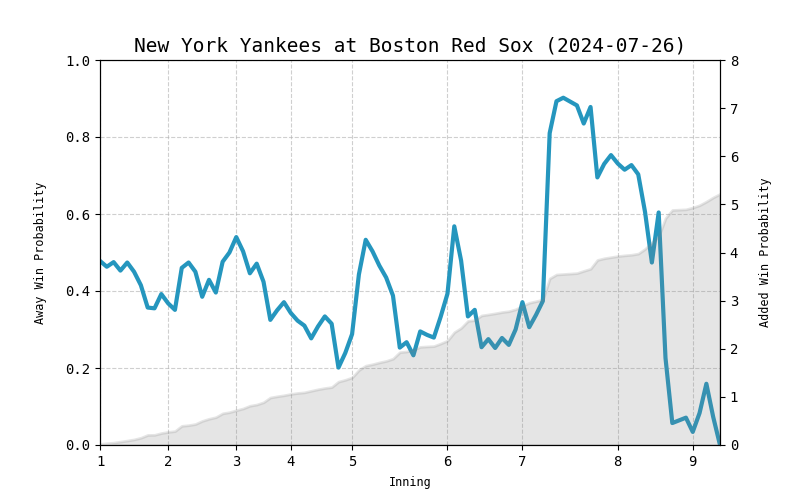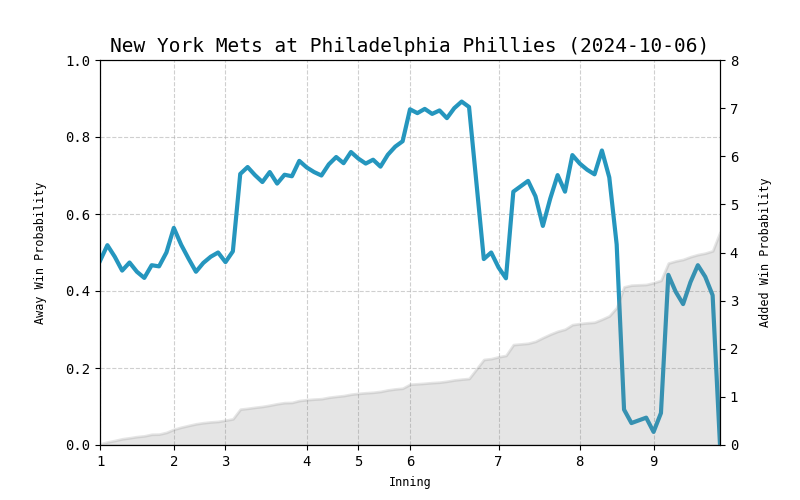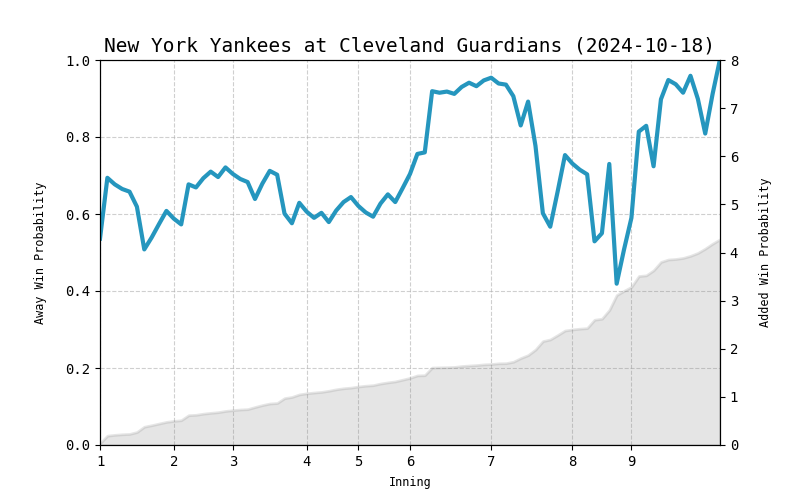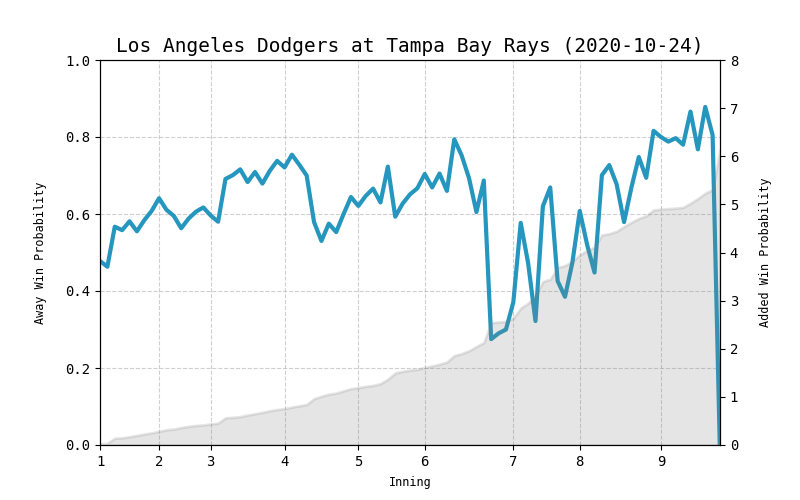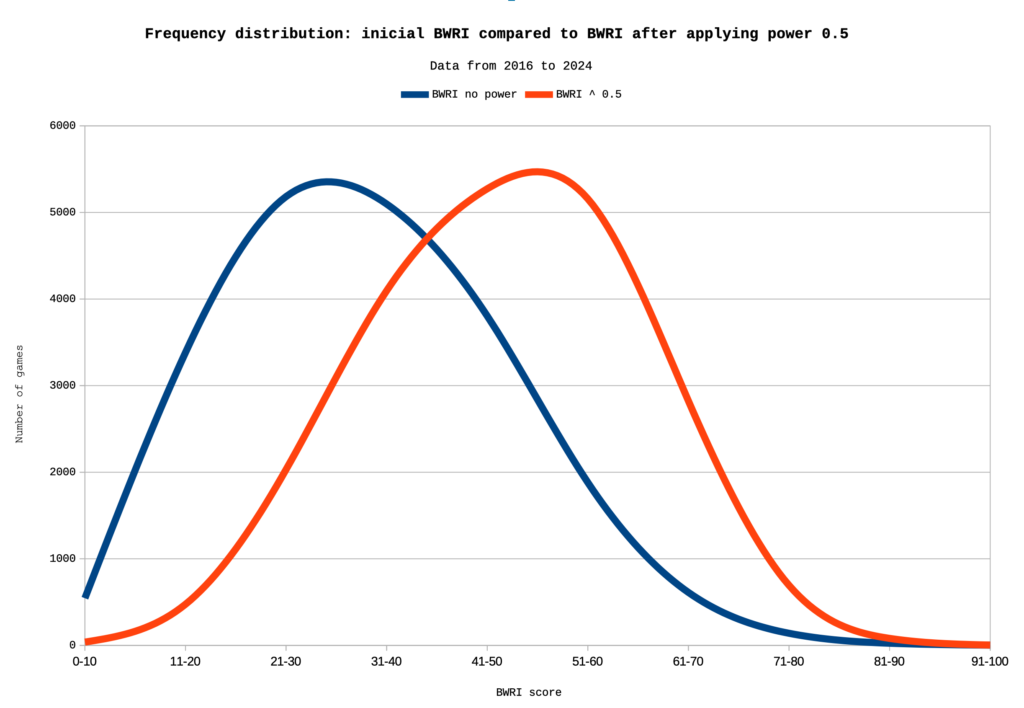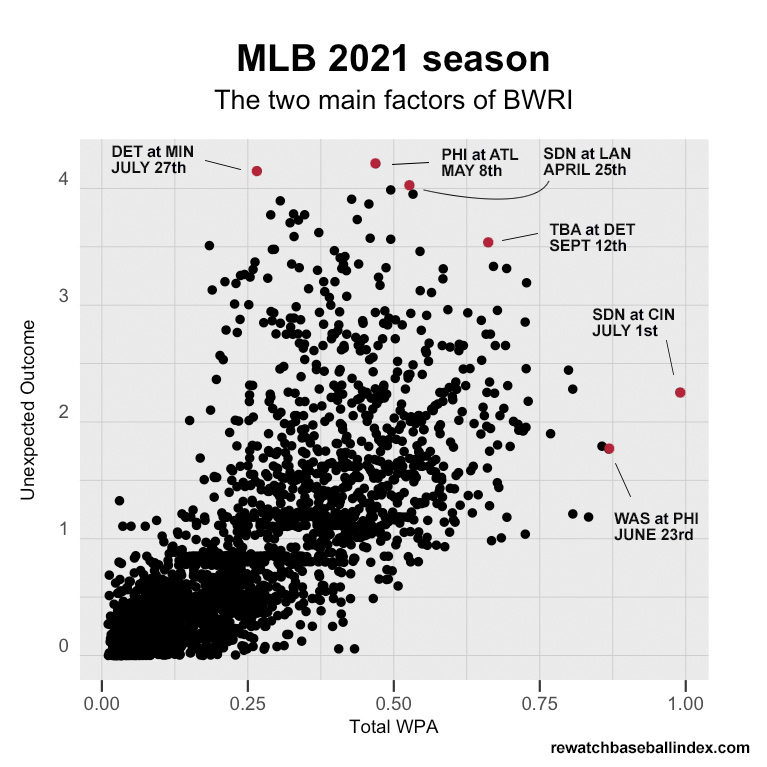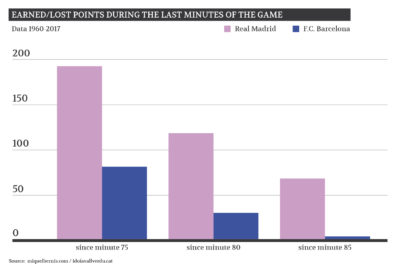One of the features that the Baseball Worth Rewatch Index (BWRI) lacked since I coded the first version was an awareness of the season’s context. The index didn’t distinguish between a meaningless September game and a Game 7 of the World Series.
A few weeks ago, I sent an email announcing that the 2024 season scores were now available. To my surprise, I received a thoughtful reply from the cohost of my favourite baseball podcast, Effectively Wild: Ben Lindbergh, who not only noticed this limitation but also suggested a solution: looking into the Championship Leverage Index (cLI) from Baseball Reference.
The Championship Leverage Index (cLI) essentially measures the importance of a game to a team’s chances of winning the World Series. Quoting Baseball Reference:
“For each team game, we run 25,000 coin-toss simulations of the remainder of the season twice. In the first simulation, we assume the team won the game in question. In the second simulation, we assume the team lost the game in question. The difference between the team’s World Series win probabilities after a win and a loss measures the importance this game has on the team’s World Series win probability.”
In other words, cLI quantifies how crucial a game is. Baseball Reference calculates this metric for every team and game during the regular season. However, cLI values for postseason games aren’t provided.
I decided to adapt the concept for the postseason by assigning a fixed value to each stage. For example, every Game 1 of a Division Series would have the same value. For this approach, I avoided focusing on World Series win probabilities, as doing so would disproportionately inflate the importance of the most critical postseason games, crowding the top of the table with those alone.
I assigned a World Series Game 7 a cLI value of 36, keeping in mind that the highest cLI recorded for a regular-season game on Baseball Reference (since 2016) was 13.51. That game, Texas at Seattle on September 30, 2023 (the last game of the regular season), held enormous stakes: Seattle could have won the division title but, with the loss, missed the postseason entirely.
Now, cLI is part of the BWRI calculation. It ranks as the second-most important factor, just behind Win Probability Added (WPA).
The impact of cLI is clear on BWRI scores. The Top 3 games since 2016 are dominated by World Series matchups:
- Dodgers at Rays, Game 4, 2020
- Dodgers at Astros, Game 5, 2017
- Cubs at Indians, Game 7, 2016
Significant changes are also observed in late-season games. Here’s a comparison of the previous and new rankings for some notable 2024 games:
| Game | Previous Rank | New Rank |
| NYY at LA, WS, Game 5 | #370 | #1 |
| NYM at ATL, Sep, 30th (1) | #28 | #4 |
| CLE at DET, DS, Game 4 | #117 | #5 |
| NYY at CLE, CS, Game 4 | #53 | #7 |
| DET at CLE, DS, Game 5 | #349 | #8 |
I hope you enjoy the new feature.

